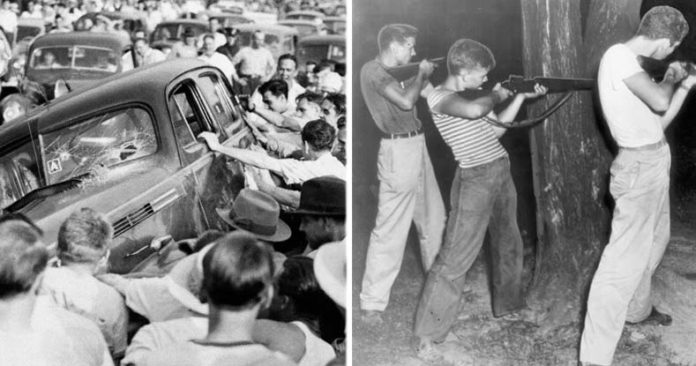Establishment political corruption and election rigging have become so commonplace, the stunning collusion and fraud perpetrated by the Democratic National Committee this year — revealed in several document leaks — seemed virtually inconsequential to vast swaths of the voting public.
To some, however, the coordinated plot to install Hillary Clinton as the Democratic nominee constituted an unforgivable breach of faith, if not outright criminality — particularly since none of those involved will be held accountable. Despite this outrage, a parallel feeling of helplessness also settled in — after all, the disillusioned lamented, what could really be done to thwart such a blatant power-grab?
To those who believe such malfeasance is beyond resolve, perhaps a revisit to the Battle of Athens on its 72nd anniversary will offer some perspective.
In 1946, war-weary GIs began to return from World War II battlefronts in Europe and Japan, ready to resume life in their sleepy Tennessee town. What they found, instead, infuriated them to the core. A power-hungry Democrat and his associates had since usurped local government and law enforcement, and had imposed a maniacal chokehold on the McMinn County town through extortive fines, excess laws, and arrests of anyone who opposed them.
While the soldiers were away fighting power-hungry foreign enemies in 1936, Paul Cantrell, a Democrat from a wealthy and prominent family, used that influence to win the position of sheriff. Though many Athens citizens strongly suspected Cantrell hadn’t been elected through entirely legal means, there appeared to be no way to challenge the results.
As the years passed, Cantrell and his deputies took full advantage of Tennessee law which gave the unscrupulous men a fee for each person arrested, jailed, and released. According to some accounts, the lawmen even pulled over buses that happened to pass through town, summarily arrested everyone on board for drunkenness — whether or not they actually were — in order to profit handily from their misfortune. But such arrests and fines required paperwork — which meant traceable money — and to some degree hindered the men’s ability to rake in cash.
“It was less troublesome to collect kickbacks for allowing roadhouses to operate openly,” American Heritage explained. “Cooperative owners would point out influential patrons. They were not bothered, but the rest were subject to shakedowns. Prostitution, liquor, and gambling grew so prevalent that it became common knowledge in Tennessee that Athens was ‘wide open.’”
Read Much More HERE



